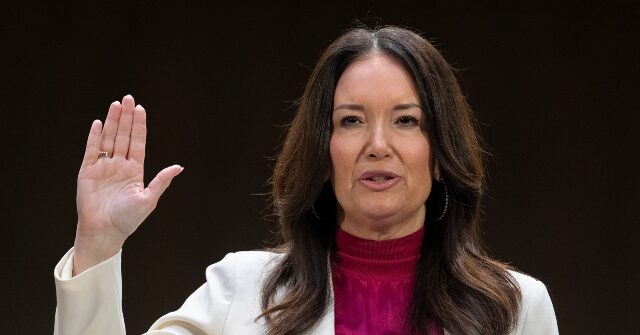The Fight for Economic Sovereignty
Agriculture Secretary Brooke Rollins recently addressed the importance of economic sovereignty on CNN’s “The Lead,” emphasizing the need to bring jobs back to America and produce goods within U.S. borders. This initiative, part of the broader effort to make America great again, underscores a commitment to revitalizing domestic industries and reducing reliance on foreign manufacturing. Rollins acknowledged that tariffs are a crucial tool in this strategy, despite the challenges they present. She expressed optimism that the current trade dynamics, including tensions with Mexico and Canada, would ultimately lead to a favorable resolution. The tariffs, she suggested, are part of a strategic negotiation process aimed at securing better trade deals and reinforcing U.S. economic resilience.
The Art of the Deal
Rollins framed the ongoing trade negotiations as an exercise in the "art of the deal," highlighting the administration’s intent to leverage tariffs to secure advantageous trade agreements. While the immediate focus remains on resolving issues with Mexico and Canada, Rollins emphasized the importance of expanding trade partnerships globally. She pointed to countries like India, Vietnam, and Great Britain as potential new trade allies, suggesting that the trade war could yield beneficial outcomes by diversifying U.S. export markets. This strategic approach reflects a broader effort to balance domestic economic interests with the need to engage proactively on the global stage.
Navigating Existing Relationships
The administration remains committed to maintaining strong relationships with traditional trade partners like Mexico and Canada, even as it navigates the complexities of tariffs and trade negotiations. Rollins expressed confidence that the ongoing discussions would ultimately yield mutually beneficial solutions, emphasizing the importance of collaboration and shared economic goals. She acknowledged that the process might involve setbacks but stressed that the end result would be a more equitable and balanced trade framework.
A Broader Vision for Global Trade
Central to Rollins’ vision is a broader strategy to expand U.S. influence in global trade markets. She highlighted the potential to establish new partnerships with countries in Asia, Europe, and beyond, emphasizing the importance of diversifying trade relationships. This approach not only aims to reduce dependence on existing partners but also seeks to create new opportunities for U.S. exporters. By exploring untapped markets and fostering new alliances, the administration hopes to strengthen U.S. economic competitiveness on the global stage.
Addressing Concerns and Building Optimism
Despite the challenges posed by the trade war, Rollins remained upbeat about the future of U.S. trade policy. She emphasized the administration’s commitment to addressing concerns and ensuring that the benefits of trade are shared equitably. Rollins expressed confidence that the current negotiations would yield positive outcomes, both in terms of resolving existing disputes and opening up new trade avenues. Her optimism reflects a broader belief that the administration’s strategy will ultimately enhance U.S. economic prosperity.
The Path Forward: Balancing Negotiation and Expansion
Looking ahead, Rollins outlined a path forward that balances the need for Negotiation with the imperative to expand U.S. trade relationships. She emphasized the importance of maintaining a strong negotiating stance while simultaneously exploring new markets and partnerships. This dual approach reflects a strategic effort to strengthen U.S. economic sovereignty while engaging proactively with the global economy. By focusing on both immediate challenges and long-term opportunities, the administration aims to create a more resilient and dynamic trade framework that benefits American workers and businesses alike.


